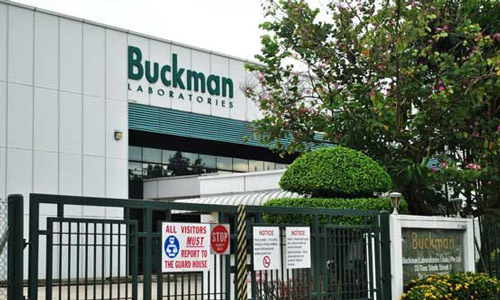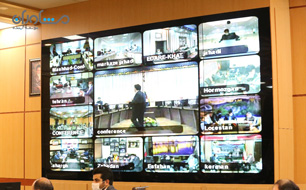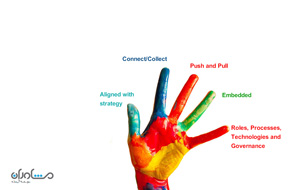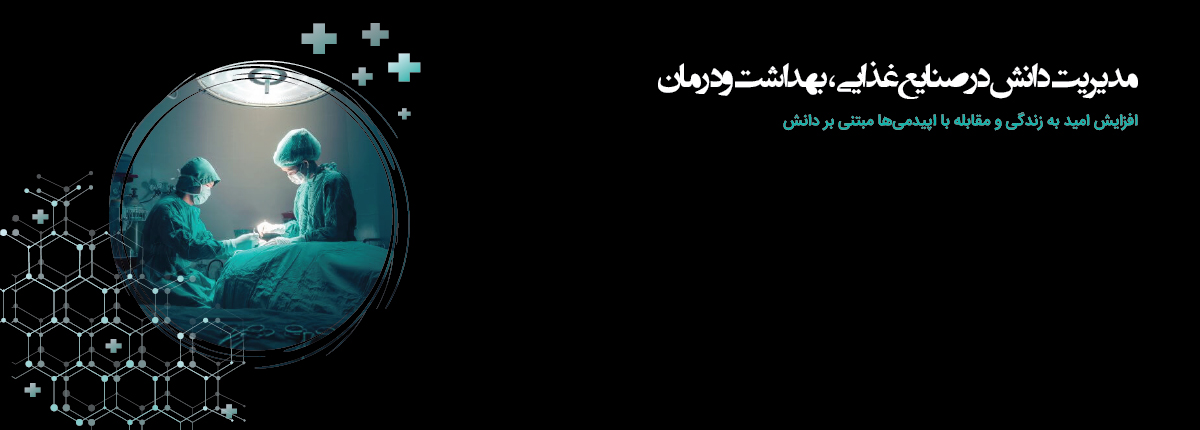
Food & Healthcare
Today, health services and food products in any society are the foundation of individuals' physical and mental health and a prerequisite for sustainable development. More than any other profession, employees of these industries need to solve problems quickly and make immediate decisions. Physicians and medical staff are frequently on the lookout for new information, and it is essential to categorize and use it promptly. On the other hand, due to the production and provision of health services, close relationship with the customer (patient), and the importance of these measures in the community's health, health centers are at a sensitive level in terms of learning and have a special place.
The food supply chain is also a controlled process combining knowledge, skills, and technology to produce a product. Ability in the production and development of products is one of the advantageous capabilities for companies in this field, and the production and development of the product is information and knowledge-based products.
The food supply chain is also a controlled process combining knowledge, skills, and technology to produce a product. Ability in the production and development of products is one of the advantageous capabilities for companies in this field, and the production and development of the product is information and knowledge-based products.
MTA and Food industry, Healthcare
MTA has been able to take adequate measures in companies and institutions in the health and food industry by implementing knowledge management software and using the latest methods in the world and has achieved significant results. Among the knowledge management tools in this field, the following can be mentioned:
• IT-based tools such as decision support systems, computer medicine guidelines, technologies related to the virtual community for interaction, building associations and learning among physicians as well as patients, etc. ;
• Social tools such as expert associations and organizational networks;
• Educational projects and human-centered tools such as knowledge transfer processes, identifying knowledge gaps that are also mentioned in various texts.
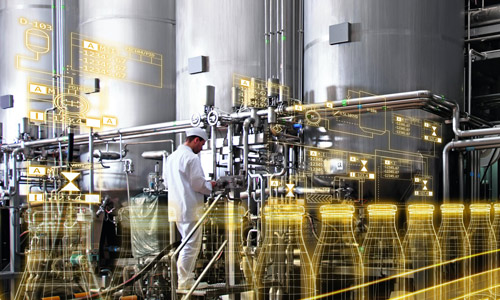
Buckman Laboratories International
Buckman Labs Company is a privately held company specializing in more than 500 specialized chemical products and services in paper-making technologies, industrial water treatment, chemical leather materials, textiles, and plastics. "We need to use our communication systems to share both overt and covert knowledge as much as possible so that people always have the full support of the company and do not feel alone in the face of competition," said Buckman, CEO and former chairman of the executive committee.
"Our focus has been 90 percent on changing culture and 10 percent on changing technology. Technology is the simplest part of the story, and the focus should be on changing culture and how to move toward a networked communication model," says Bob Buckman.
"Our focus has been 90 percent on changing culture and 10 percent on changing technology. Technology is the simplest part of the story, and the focus should be on changing culture and how to move toward a networked communication model," says Bob Buckman.

The benefits of knowledge management in Buckman
The estimated total cost of knowledge management platform within Buckman is $ 7,500 per employee per year, or $ 10.5 million in total annual costs (including all hardware, software, and networking costs associated with knowledge sharing and tools). But in return, the following benefits were obtained:
• 50% increase in sales of new products;
• 51% increase in sales of each partner;
• Reducing the operating costs of each branch to 93%;
• Reduce learning center training costs from $ 1,000 per hour to $ 25-40;
• Improve the overall speed of customer response from a few days and a few hours a week.
• 50% increase in sales of new products;
• 51% increase in sales of each partner;
• Reducing the operating costs of each branch to 93%;
• Reduce learning center training costs from $ 1,000 per hour to $ 25-40;
• Improve the overall speed of customer response from a few days and a few hours a week.
